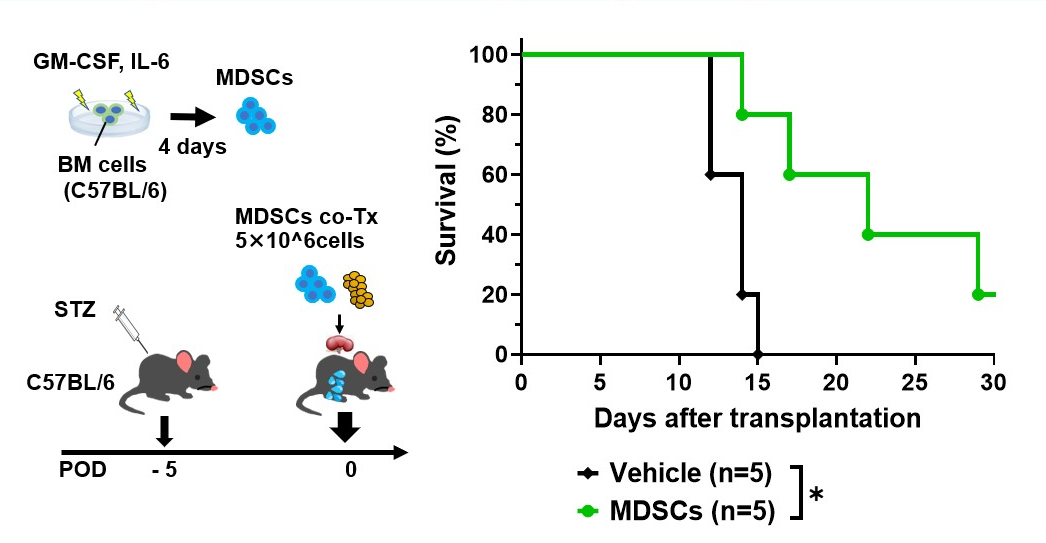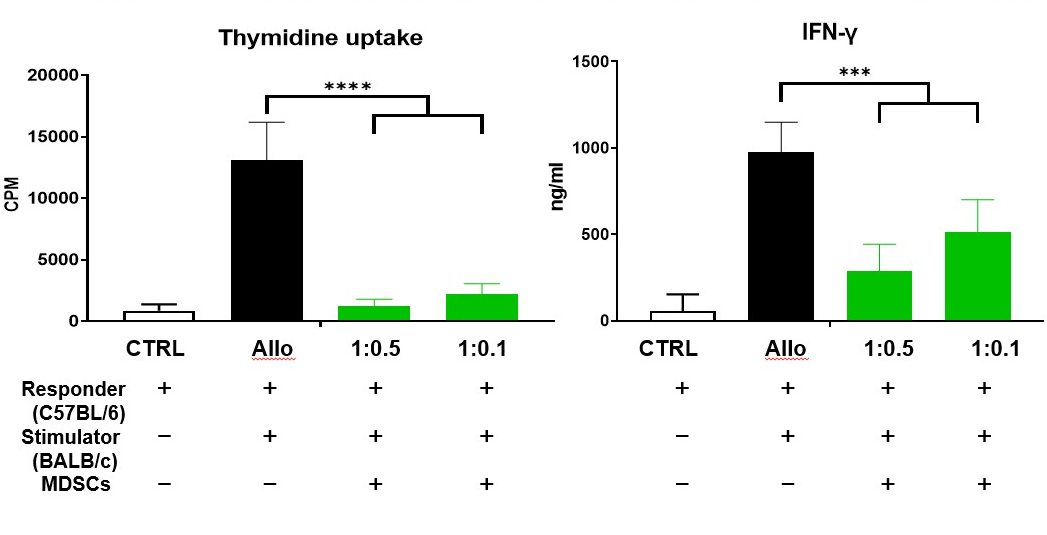Therapeutic potential of myeloid-derived suppressor cells in islet transplantation
Mizuki Inage1, Masaki Harada1, Akie Yamaji1, Ko Okumura1, Kazuyoshi Takeda1, Koichiro Uchida1.
1Center for Immunotherapy and Diagnosis, Juntendo University, Tokyo, Japan
Introduction: Myeloid-derived suppressor cells (MDSCs) are a heterogeneous population of immature cells of myeloid origin and can negatively regulate the allogeneic immune responses [1][2]. However, clinical trials to apply MDSCs to inhibit graft rejection have not yet demonstrated sufficient benefit for the transplanted patients [3]. Islet transplantation is highly compatible with cell therapy since islets can be co-transplanted or cultured prior to transplantation with other cells. In the present study, we explored the efficacy of MDSCs to inhibit allogeneic immune responses and prolong islet graft survival in a mouse model.
Method: MDSCs were induced by culturing bone marrow cells with GM-CSF and IL-6 for 4 days and analyzed the phenotype by using FCM. MDSCs were co-transplanted with islet allografts under the kidney capsule of streptozotocin-induced diabetic recipient mice. The graft survival was monitored by blood glucose level. The suppressive function and the mechanism of the MDSCs were investigated in mixed lymphocyte reaction or CD3 stimulation assay. Treg expansion was analyzed in vitro using FoxP3/hCD2 reporter mice.
Results: Induced MDSCs showed the phenotype CD11b+ Gr1+. Co-transplantation with MDSCs under kidney capsule in islet transplantation effectively prolonged graft survival compared to vehicle (P=0.019) (Figure.1). MDSCs showed significant suppressive capacity in alloreactive immune responses (P<0.001) (Figure.2). MDSCs inhibited T cell activation through inducible nitric oxide synthase (iNOS). MDSCs contributed to expand CD4+ FoxP3+cells (Treg) in vitro.


Conclusion: MDSCs showed the therapeutic potential to prolong islet allograft survival via inhibiting T cell response and Treg expansion.
[1] [1] Jordi O. Tolerogenic Role of Myeloid Suppressor Cells in Organ Transplantation. Front Immunol. 2019; 10: 1-9.
[2] Shao L. Emerging Role of Myeloid-derived Suppressor Cells in the Biology of Transplantation Tolerance. 2020; 104(3): 467-475.
[3] Thomson A.W. Regulatory dendritic cells for promotion of liver transplant operational tolerance: rationale for a clinical trial and accompanying mechanistic studies, Hum. Immunol. 2018; 79(5): 314-321